【新课标】Module 1 Unit 1 It’s more than 2,000 years old.课件
文档属性
| 名称 | 【新课标】Module 1 Unit 1 It’s more than 2,000 years old.课件 |
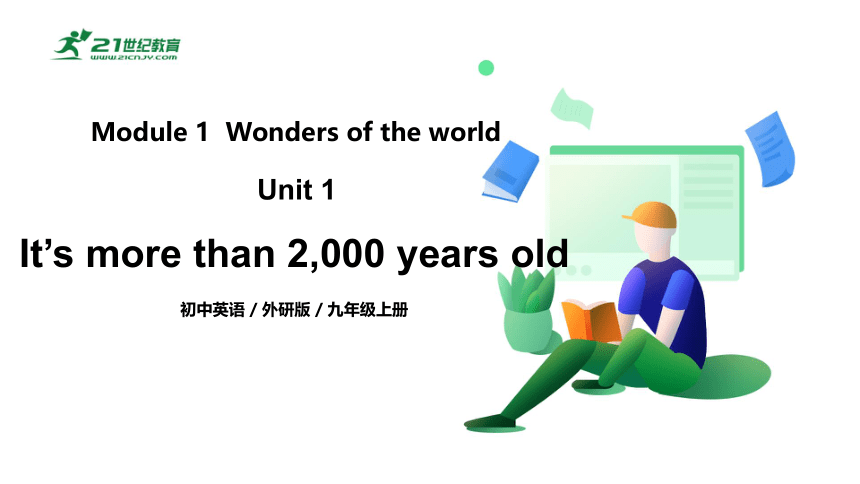
|
|
| 格式 | pptx | ||
| 文件大小 | 11.4MB | ||
| 资源类型 | 试卷 | ||
| 版本资源 | 外研版 | ||
| 科目 | 英语 | ||
| 更新时间 | 2022-07-04 10:21:03 | ||
图片预览

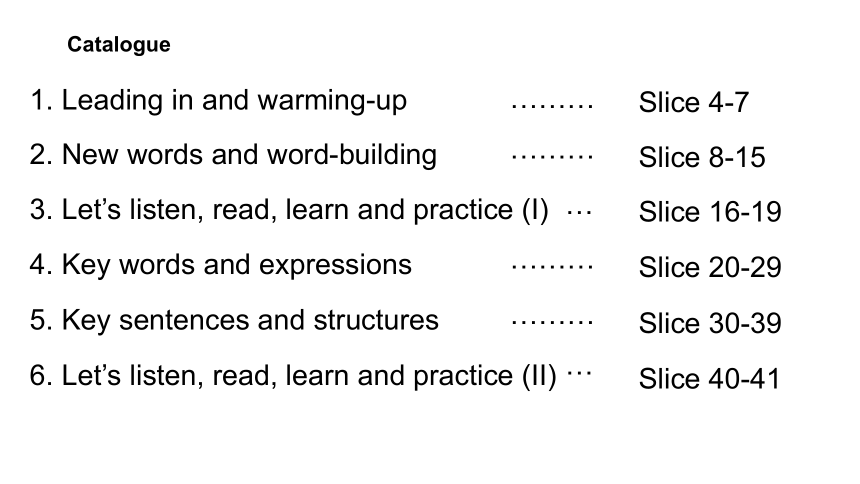
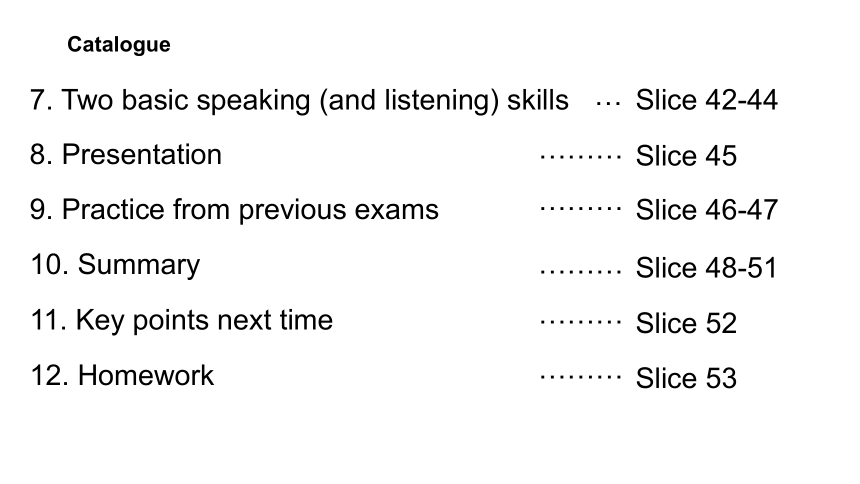
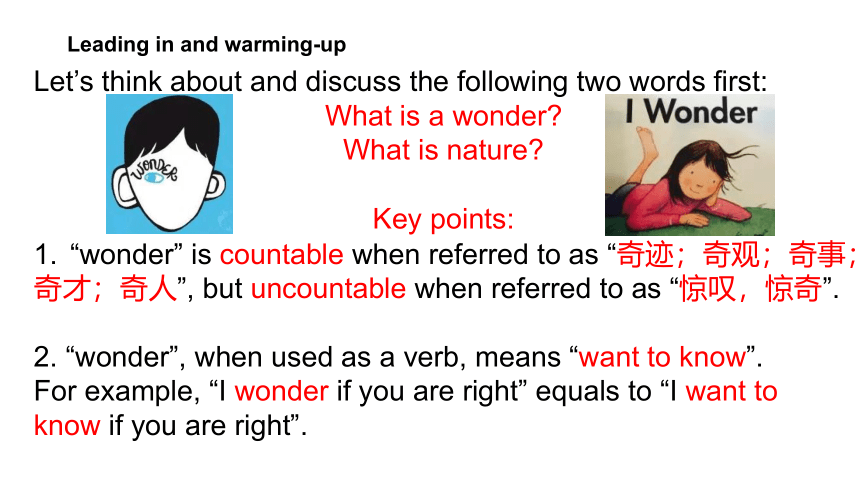

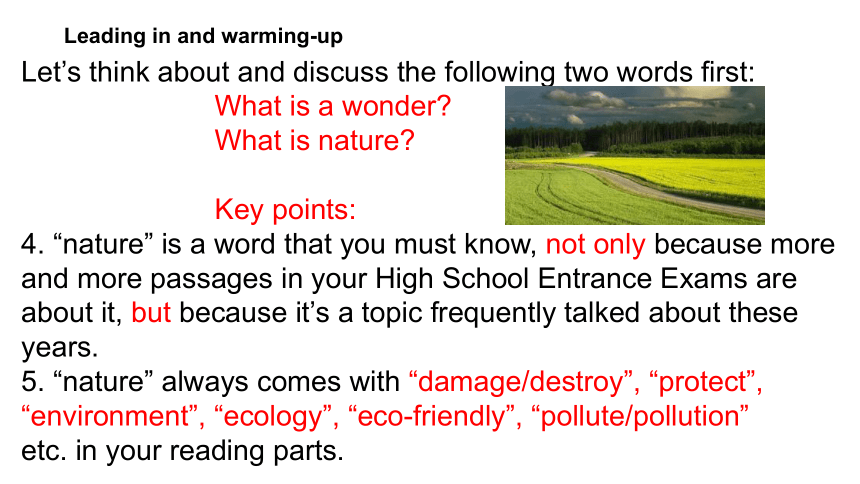

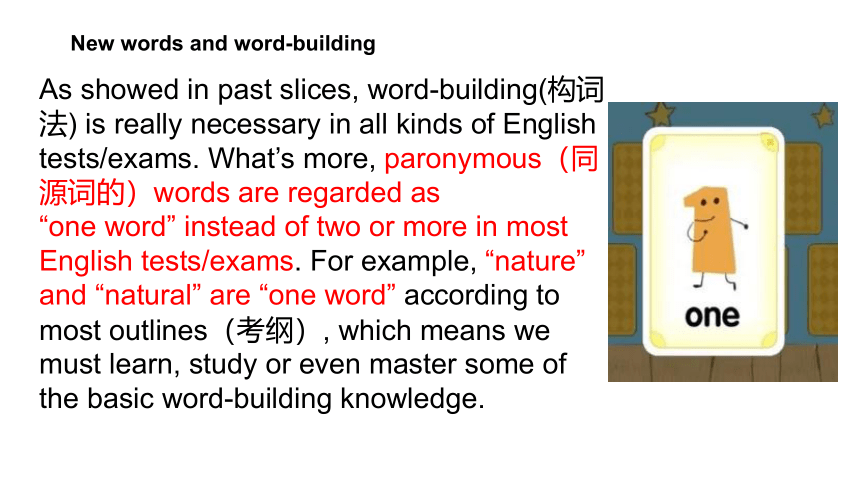
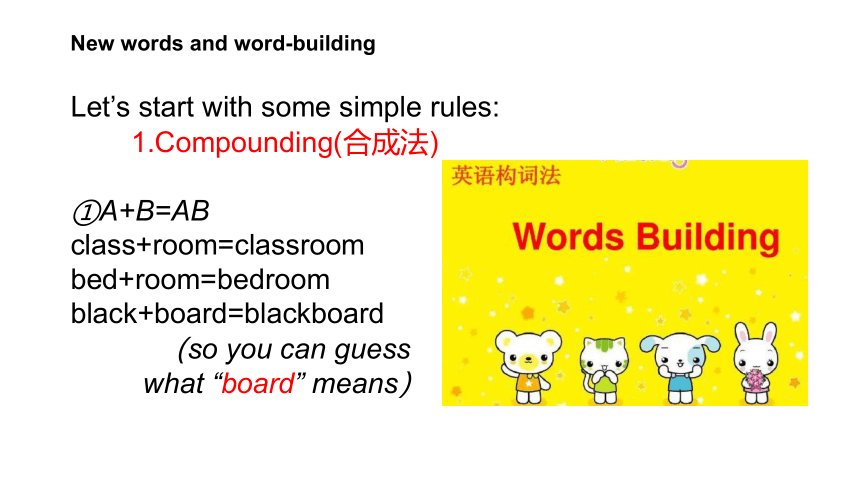
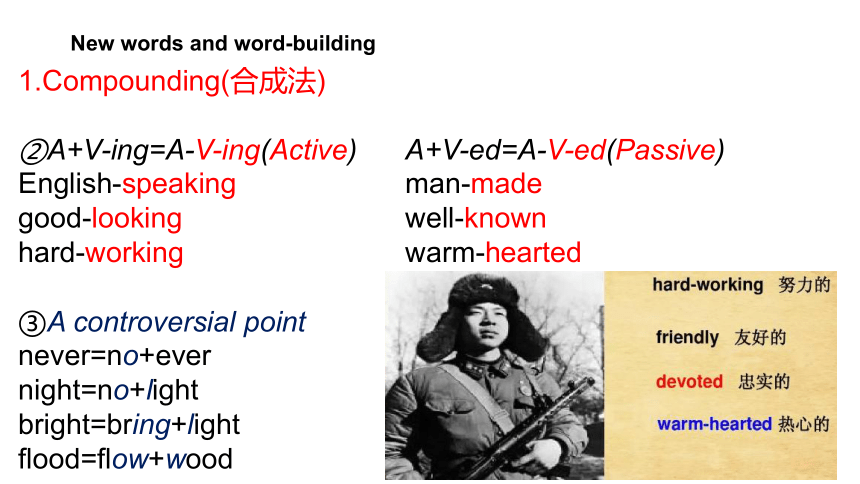
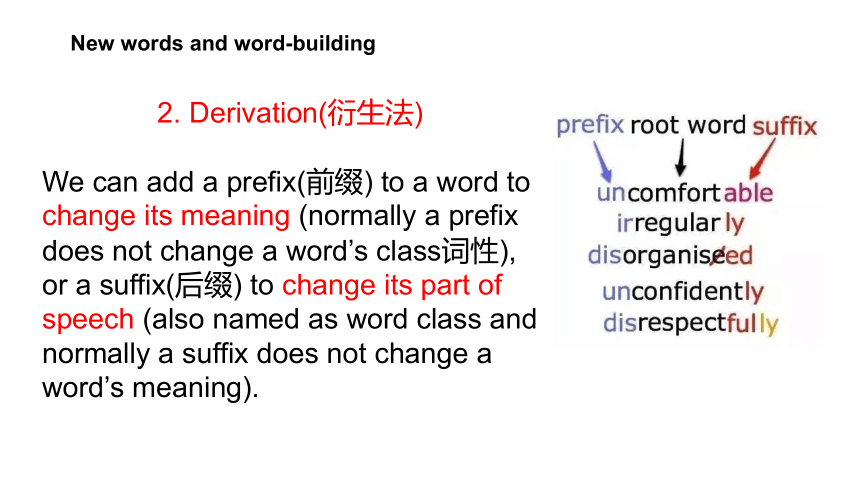
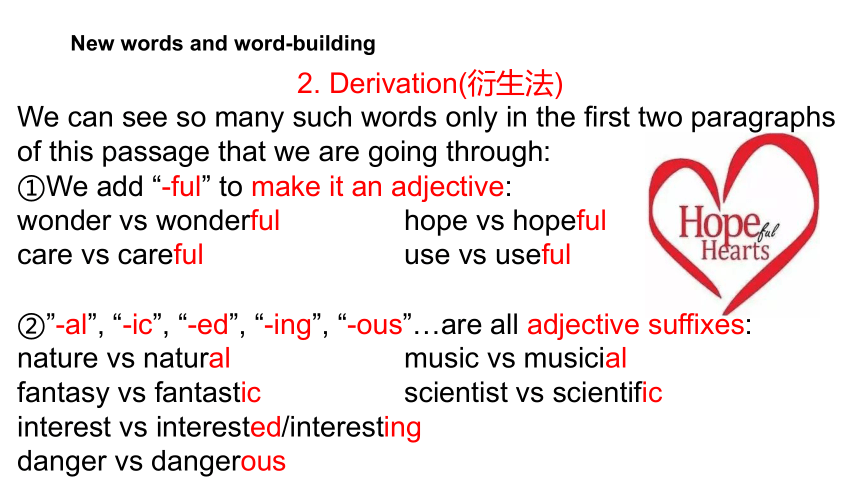
文档简介
(共55张PPT)
It’s more than 2,000 years old
初中英语 / 外研版 / 九年级上册
Module 1 Wonders of the world
Unit 1
Catalogue
1. Leading in and warming-up
2. New words and word-building
3. Let’s listen, read, learn and practice (I)
4. Key words and expressions
5. Key sentences and structures
6. Let’s listen, read, learn and practice (II)
Slice 4-7
Slice 8-15
Slice 16-19
Slice 20-29
Slice 30-39
Slice 40-41
………
………
………
………
…
…
Catalogue
7. Two basic speaking (and listening) skills
8. Presentation
9. Practice from previous exams
10. Summary
11. Key points next time
12. Homework
Slice 42-44
…
Slice 52
Slice 46-47
Slice 48-51
Slice 45
Slice 53
………
………
………
………
………
Leading in and warming-up
Let’s think about and discuss the following two words first:
What is a wonder
What is nature
Key points:
“wonder” is countable when referred to as “奇迹;奇观;奇事;
奇才;奇人”, but uncountable when referred to as “惊叹,惊奇”.
2. “wonder”, when used as a verb, means “want to know”.
For example, “I wonder if you are right” equals to “I want to
know if you are right”.
Leading in and warming-up
Let’s think about and discuss the following two words first:
What is a wonder
What is nature
Key points:
3. “wonderful” means something really great.
You can use it to replace the boring words,
such as “very good”, “great”,
in your writing parts, which makes it
easier for you to get a higher point.
Leading in and warming-up
Let’s think about and discuss the following two words first:
What is a wonder
What is nature
Key points:
4. “nature” is a word that you must know, not only because more and more passages in your High School Entrance Exams are about it, but because it’s a topic frequently talked about these years.
5. “nature” always comes with “damage/destroy”, “protect”, “environment”, “ecology”, “eco-friendly”, “pollute/pollution”
etc. in your reading parts.
Leading in and warming-up
Let’s think about and discuss the following two words first:
What is a wonder
What is nature
Key points:
6. The adjective form of nature is
“natural”.
Extra
Have you ever noticed that both “wonder” and “nature” have so many different yet similar forms Is there an easier way to remember all the forms
New words and word-building
As showed in past slices, word-building(构词法) is really necessary in all kinds of English tests/exams. What’s more, paronymous(同源词的)words are regarded as
“one word” instead of two or more in most English tests/exams. For example, “nature” and “natural” are “one word” according to most outlines(考纲), which means we must learn, study or even master some of the basic word-building knowledge.
New words and word-building
Let’s start with some simple rules:
1.Compounding(合成法)
①A+B=AB
class+room=classroom
bed+room=bedroom
black+board=blackboard
(so you can guess
what “board” means)
New words and word-building
1.Compounding(合成法)
②A+V-ing=A-V-ing(Active) A+V-ed=A-V-ed(Passive)
English-speaking man-made
good-looking well-known
hard-working warm-hearted
③A controversial point
never=no+ever
night=no+light
bright=bring+light
flood=flow+wood
New words and word-building
2. Derivation(衍生法)
We can add a prefix(前缀) to a word to change its meaning (normally a prefix does not change a word’s class词性), or a suffix(后缀) to change its part of speech (also named as word class and normally a suffix does not change a word’s meaning).
New words and word-building
2. Derivation(衍生法)
We can see so many such words only in the first two paragraphs of this passage that we are going through:
①We add “-ful” to make it an adjective:
wonder vs wonderful hope vs hopeful
care vs careful use vs useful
②”-al”, “-ic”, “-ed”, “-ing”, “-ous”…are all adjective suffixes:
nature vs natural music vs musicial
fantasy vs fantastic scientist vs scientific
interest vs interested/interesting
danger vs dangerous
New words and word-building
2. Derivation(衍生法)
③While “-ion/-tion/-sion” are noun suffixes:
discuss vs discussion state vs station
pollute vs pollution act vs action
④We can add “dis-” to express the opposite meaning of the original word:
agree vs disagree like vs dislike
honest vs dishonest cover vs discover
New words and word-building
3. Conversion(转化法)
Conversion means one word has different classes(词性), sometimes even different meanings originated(源自) from the one meaning. We have at least two examples in this unit.
① “sign” means “write one’s name”
when used as a verb. Wonder why
Look at the picture.
It’s a sign of their own.
(From President of France)
New words and word-building
3. Conversion(转化法)
② “fall” also means “autumn” as a noun, but “drop” as a verb.
What do the three meanings have in common
Correct, they all go DOWN!
water down leaves down everything down
Let’s listen, read, learn and practice (I)
Let’s listen, read, learn and practice (I)
The Terracotta Army
The Three Gorges Dam
The Giant’s Causeway
Victoria Falls
Match
Let’s listen, read, learn and practice (I)
Example: The Three Gorges Dam, which is a symbol of China’s high technology, is both a modern wonder and a man-made one.
Now listen and check.
Let’s listen, read, learn and practice (I)
Key words and expressions
1. match (v & n)
① v. match a to/with b
Please match the left words to/with their correct meanings.
② n.
I need a match to make the fire.
③ n.
Have you watched the match that China won
④ n.
They are a match.
What is “matchmaking” when you playing a game
Key words and expressions
2. join in≈take part in≈attend≈participate
Steven never joins in the usual sports of our school.
Steven never takes part in the usual sports of our school.
Steven never attends the usual sports of our school.
Steven never participates the usual sports of our school.
Extra:
①pay attention to (doing) sth
②Synonym(近义词) is the key to a high reading score and remember: the only way to excelling(胜出) in reading
parts is paraphrase(同意改写) .
Key words and expressions
3. noise vs sound vs voice
①noise: especially of a loud, harsh, or confused kind; loud shouting
I hate any noise while I’m sleeping.
Everyone should make some noise if you support me.
(Extra-noisy: Nowadays cities are noisy.)
②sound: hearing by vibrations transmitted through the air or other medium
He made no sound and left.
③voice: the sound or sounds uttered
through the mouth of living creatures
What a huge voice!
Key words and expressions
4. in one’s opinion≈in one’s view/viewpoint≈sb thinks (that)
In Amy’s opinion, life is boring in such a small city. =
In Amy’s view/viewpoint, life is boring in such a small city. =
Amy thinks (that) life is boring in such a small city.
Small Tips:
Again, synonym and paraphrase!
Key words and expressions
5. produce
① v. to create
The factory no longer produces.
② n (un.). agricultural products
The shopping mall even
sells native produce.
Extra:
producer
product
Key words and expressions
6. electricity vs electronic
①electricity≈power
What would the world be if there’s no electricity/power
② “e” stands for “electronic” in more and more words, especially in recent 20 years or so, such as:
email/e-mail=electronic mail
esports/e-sports=electronic sports, including video games and mobile phone games, in which we can join in to compete for the final standings and prize money.
Key words and expressions
7. millions of
①We must add “s” when the word “million” is followed by “of”, which can be seen in the text;
②Never put any numerals before the phrase since it doesn’t refer to an exact number;
× five millions of stars
√ millions of stars
③As showed above, the phrase will
always be followed by the plural form of a noun;
④Similar phrases:
dozens of; scores of; hundreds of; thousands of
Key words and expressions
8. one (pron.)
①When “one/ones” means “a person/persons”, it is always formal.
②You can also use “one” to avoid gender discrimination(性别歧视)and thus, at times, stands for plural form.
Everyone is special in their own way.·
③”one/ones” refers to a different thing in the same kind, while “it/they” refers to the same thing.
Try comparing the following sentences:
The pen writes so well. May I have one
The pen writes so well. May I have it
Key words and expressions
9. agree: agree with sb (on sth)
He never agrees with me on anything.
Who agrees with Amy
We agreed on the traveling plan.
Extra:
disagree with sb (on sth)
agreement
We signed an agreement yesterday.
agreeable
She is a very agreeable person.
Key words and expressions
10. run
①vi
He ran away at once.
The road runs for 1.5 kilometers.
②vt
More and more students start to learn how to run their own
businesses.
Extra:
in the long run / in the short run
The river runs dry.
Key sentences and structures
1.would like (to)…
In most cases, would like (to) has pretty much the same meaning as “want (to)”, but in a more polite and formal way.
①If a verb follows, then we must use the “to do” structure:
I would like to go out tonight.
I would like to have a talk with you.
②If a noun follows, then the “to” is not added:
I would like a cup of coffee.
I would like some soup and fish.
Key sentences and structures
1.would like (to)…
③Do remember that “would” is a modal verb, which means that the third person singular does not exist, that it must be followed by the original form of a verb and that it functions the same as verb be in both interrogative(疑问的)and
negative(否定) sentence, such as:
He would like to leave alone.
What would you like
You can compare would with can to have a deeper
understanding.
Key sentences and structures
2. I’m not sure (that)…
In English, “sb be adj (that)…” is so frequently used and, of course, since “that” is there, the sentence pattern should be followed by a complete sentence. We can define(定义) the pattern as an Object Clause even though there has always been a hot debate on the clause type.
He’s afraid (that) he’ll be late.
I’m so worried (that) you will fail.
We were so glad back then (that) you won the game.
Key sentences and structures
3. That sounds great.
A quick review on Linking Verbs(系动词)
Group I
You look old while she looks young.
That joke sounded funny.
The soup tastes delicious.
The flowers smelt sweet.
That blackboard feels hard.
Key sentences and structures
A quick review on Linking Verbs
Group II
Suddenly, Amy became homeless.
Alice is turning 2! His face turned red.
It is getting hotter and hotter.
Her hair grows grey.
The rice goes bad.
Dreams come true.
His blood ran cold.
I fell ill yesterday.
What do they have in common and what should you pay attention to in writings or exams
Key sentences and structures
4. though≈although
It’s not that difficult to use these two words in writings, but you need to remember at least three things:
①Both words can not be combined with “but” in one sentence.
× Although/Though it is raining,
but I still go to school.
√ Although/Though it is raining,
I still go to school.
√ It is raining,
but I still go to school.
Key sentences and structures
4. though≈although
②If you use either of them at the beginning of a sentence, remember to put a comma before writing the main clause.
Although/Though it is raining, I still go to school.
But you don’t need to do so when writing the main clause first.
I still go to school although/though it is raining.
③”though” can be used as the last word of a sentence to equalize “but”, should be separated by a comma (,though), while “although” can not.
√ I think he is right, though. = But I think he is right.
× I think he is right, although.
Key sentences and structures
5. Degree modifier(修饰比较级)
We can put the following words before a comparative degree structure to make the sentence more precise.
①a little=a bit
Taking a car is just a little/bit faster
than taking a bus in traffic-jams.
②much=far=a lot
Taking a plane is much/far/a lot faster
than taking a train.
③even
The temperature was even higher than last year.
Key sentences and structures
5. Degree modifier
We can put the following words before a comparative degree structure to make the sentence more precise.
④still
He is still better than his brother.
⑤some/any
Are you feeling any better
I feel some better now.
⑥rather
That city is rather smaller than this one.
Key sentences and structures
5. Degree modifier
Extra
“no…than…”, which means neither is good.
This game is no better than that one=
This game is as bad as that one.
He runs no faster than me=
He runs as slowly as me.
while “not…than…”, which means the latter is better.
This game is not better than that one=That game is better.
He runs not faster than me=I run faster.
Let’s listen, read, learn and practice (II)
Key 4
It’s on the eastern coast of Northern Ireland.
It’s about 1,700 metres wide.
Man-made wonders.
It’s more than 2,000 years old.
Let’s listen, read, learn and practice (II)
opinion
huge
discussion
eastern
though
Two basic speaking (and listening) skills
Two basic speaking (and listening) skills
1. Linking Sounds(连读)
When a word ends with a consonant sound(辅音发音)followed by a word beginning with a vowel sound(元音发音),
the two words pronounce in a linked way(连读) just like they are only one word.
So in the sentence “I’ve never seen it,” instead of pronouncing like two words, /si:n/ /it/, you should speak like one word /’si:nit/. Like this:
I’ve never seen it.
Two basic speaking (and listening) skills
2. Loss of Plosion(失去爆破)
When a word ends with a plosive sound (/b/, /p/, /k/, /g/, /t/ or /d/ 爆破音) followed by a word beginning with a consonant sound, we just lose the plosive sound(失去爆破).
This rule also works for almost any single word, such as goodbye, or September should be pronounced like goo(d)bye and Se(p)tember most of the time.
Instead of speaking “That sounds great”, you should pronounce like “Tha(t) sounds great.”
Presentation
I’ll pick up some desk mates randomly(随机地) to act for all of us with the requirements (要求) below:
1. At least 6 sentences, 3 for each;
2. Use some of the key words/expressions learned today;
3. No longer than 2 minutes;
Practice from previous exams
1. Grace is going to give much money to charity, ______ she is not rich enough.
A. if B. unless C. since D. though
2. We should give the boy another chance ______ he has made some mistakes.
A. though B. when C. unless D. which
3. Football is do exciting that _______ people in the world play it.
A. million of B. millions of
C. two millions of D. million
D
A
B
Practice from previous exams
大峡谷是世界自然奇观之一。
The Grand Canyon is __________________________ of the natural world.
2. 我认为这部电影中有太多的打斗。 (in one’s opinion) ________________________________________________
one of the greatest wonders
In my opinion, there is/was too much fighting in the/this movie/film.
Summary
So what have we got
Word-building
1. Compounding
2. Derivation
3. Conversion
Summary
So what have we got
Key words and expressions 1. match 2. join in
3. noise vs sound vs voice 4. in one’s opinion
5. produce 6. electricity vs electronic
7. millions of 8. one (pron.)
9. agree 10. run
Summary
So what have we got
Key sentences and structures 1. would like (to)… 2. I’m not sure (that)… sb be adj (that)…
3. That sounds great. A quick review on Linking Verbs
4. though ≈ although 5. Degree modifier no…than… vs. not…than…
Summary
So what have we got
Two Basic Speaking (and Listening) Skills
1. Linking Sounds
2. Loss of Plosion
Key points next time
1. Explain the differences between the “Present Perfect Tense” and the “Simple Past Tense”;
2. A quick review on the superlative degree;
3. Dictation;
4. More to follow…
Homework
1. Review the notes taken at class,
especially the key parts;
2. Recite all the key words and
expressions, paraphrases included;
3. Write a short passage with the title
“Which wonder of the world would
I like to visit ” or “The best wonder
that I have ever been” within 100 words;
4. Preview Unit 2.
谢谢
21世纪教育网(www.21cnjy.com)
中小学教育资源网站
兼职招聘:
https://www.21cnjy.com/recruitment/home/admin
It’s more than 2,000 years old
初中英语 / 外研版 / 九年级上册
Module 1 Wonders of the world
Unit 1
Catalogue
1. Leading in and warming-up
2. New words and word-building
3. Let’s listen, read, learn and practice (I)
4. Key words and expressions
5. Key sentences and structures
6. Let’s listen, read, learn and practice (II)
Slice 4-7
Slice 8-15
Slice 16-19
Slice 20-29
Slice 30-39
Slice 40-41
………
………
………
………
…
…
Catalogue
7. Two basic speaking (and listening) skills
8. Presentation
9. Practice from previous exams
10. Summary
11. Key points next time
12. Homework
Slice 42-44
…
Slice 52
Slice 46-47
Slice 48-51
Slice 45
Slice 53
………
………
………
………
………
Leading in and warming-up
Let’s think about and discuss the following two words first:
What is a wonder
What is nature
Key points:
“wonder” is countable when referred to as “奇迹;奇观;奇事;
奇才;奇人”, but uncountable when referred to as “惊叹,惊奇”.
2. “wonder”, when used as a verb, means “want to know”.
For example, “I wonder if you are right” equals to “I want to
know if you are right”.
Leading in and warming-up
Let’s think about and discuss the following two words first:
What is a wonder
What is nature
Key points:
3. “wonderful” means something really great.
You can use it to replace the boring words,
such as “very good”, “great”,
in your writing parts, which makes it
easier for you to get a higher point.
Leading in and warming-up
Let’s think about and discuss the following two words first:
What is a wonder
What is nature
Key points:
4. “nature” is a word that you must know, not only because more and more passages in your High School Entrance Exams are about it, but because it’s a topic frequently talked about these years.
5. “nature” always comes with “damage/destroy”, “protect”, “environment”, “ecology”, “eco-friendly”, “pollute/pollution”
etc. in your reading parts.
Leading in and warming-up
Let’s think about and discuss the following two words first:
What is a wonder
What is nature
Key points:
6. The adjective form of nature is
“natural”.
Extra
Have you ever noticed that both “wonder” and “nature” have so many different yet similar forms Is there an easier way to remember all the forms
New words and word-building
As showed in past slices, word-building(构词法) is really necessary in all kinds of English tests/exams. What’s more, paronymous(同源词的)words are regarded as
“one word” instead of two or more in most English tests/exams. For example, “nature” and “natural” are “one word” according to most outlines(考纲), which means we must learn, study or even master some of the basic word-building knowledge.
New words and word-building
Let’s start with some simple rules:
1.Compounding(合成法)
①A+B=AB
class+room=classroom
bed+room=bedroom
black+board=blackboard
(so you can guess
what “board” means)
New words and word-building
1.Compounding(合成法)
②A+V-ing=A-V-ing(Active) A+V-ed=A-V-ed(Passive)
English-speaking man-made
good-looking well-known
hard-working warm-hearted
③A controversial point
never=no+ever
night=no+light
bright=bring+light
flood=flow+wood
New words and word-building
2. Derivation(衍生法)
We can add a prefix(前缀) to a word to change its meaning (normally a prefix does not change a word’s class词性), or a suffix(后缀) to change its part of speech (also named as word class and normally a suffix does not change a word’s meaning).
New words and word-building
2. Derivation(衍生法)
We can see so many such words only in the first two paragraphs of this passage that we are going through:
①We add “-ful” to make it an adjective:
wonder vs wonderful hope vs hopeful
care vs careful use vs useful
②”-al”, “-ic”, “-ed”, “-ing”, “-ous”…are all adjective suffixes:
nature vs natural music vs musicial
fantasy vs fantastic scientist vs scientific
interest vs interested/interesting
danger vs dangerous
New words and word-building
2. Derivation(衍生法)
③While “-ion/-tion/-sion” are noun suffixes:
discuss vs discussion state vs station
pollute vs pollution act vs action
④We can add “dis-” to express the opposite meaning of the original word:
agree vs disagree like vs dislike
honest vs dishonest cover vs discover
New words and word-building
3. Conversion(转化法)
Conversion means one word has different classes(词性), sometimes even different meanings originated(源自) from the one meaning. We have at least two examples in this unit.
① “sign” means “write one’s name”
when used as a verb. Wonder why
Look at the picture.
It’s a sign of their own.
(From President of France)
New words and word-building
3. Conversion(转化法)
② “fall” also means “autumn” as a noun, but “drop” as a verb.
What do the three meanings have in common
Correct, they all go DOWN!
water down leaves down everything down
Let’s listen, read, learn and practice (I)
Let’s listen, read, learn and practice (I)
The Terracotta Army
The Three Gorges Dam
The Giant’s Causeway
Victoria Falls
Match
Let’s listen, read, learn and practice (I)
Example: The Three Gorges Dam, which is a symbol of China’s high technology, is both a modern wonder and a man-made one.
Now listen and check.
Let’s listen, read, learn and practice (I)
Key words and expressions
1. match (v & n)
① v. match a to/with b
Please match the left words to/with their correct meanings.
② n.
I need a match to make the fire.
③ n.
Have you watched the match that China won
④ n.
They are a match.
What is “matchmaking” when you playing a game
Key words and expressions
2. join in≈take part in≈attend≈participate
Steven never joins in the usual sports of our school.
Steven never takes part in the usual sports of our school.
Steven never attends the usual sports of our school.
Steven never participates the usual sports of our school.
Extra:
①pay attention to (doing) sth
②Synonym(近义词) is the key to a high reading score and remember: the only way to excelling(胜出) in reading
parts is paraphrase(同意改写) .
Key words and expressions
3. noise vs sound vs voice
①noise: especially of a loud, harsh, or confused kind; loud shouting
I hate any noise while I’m sleeping.
Everyone should make some noise if you support me.
(Extra-noisy: Nowadays cities are noisy.)
②sound: hearing by vibrations transmitted through the air or other medium
He made no sound and left.
③voice: the sound or sounds uttered
through the mouth of living creatures
What a huge voice!
Key words and expressions
4. in one’s opinion≈in one’s view/viewpoint≈sb thinks (that)
In Amy’s opinion, life is boring in such a small city. =
In Amy’s view/viewpoint, life is boring in such a small city. =
Amy thinks (that) life is boring in such a small city.
Small Tips:
Again, synonym and paraphrase!
Key words and expressions
5. produce
① v. to create
The factory no longer produces.
② n (un.). agricultural products
The shopping mall even
sells native produce.
Extra:
producer
product
Key words and expressions
6. electricity vs electronic
①electricity≈power
What would the world be if there’s no electricity/power
② “e” stands for “electronic” in more and more words, especially in recent 20 years or so, such as:
email/e-mail=electronic mail
esports/e-sports=electronic sports, including video games and mobile phone games, in which we can join in to compete for the final standings and prize money.
Key words and expressions
7. millions of
①We must add “s” when the word “million” is followed by “of”, which can be seen in the text;
②Never put any numerals before the phrase since it doesn’t refer to an exact number;
× five millions of stars
√ millions of stars
③As showed above, the phrase will
always be followed by the plural form of a noun;
④Similar phrases:
dozens of; scores of; hundreds of; thousands of
Key words and expressions
8. one (pron.)
①When “one/ones” means “a person/persons”, it is always formal.
②You can also use “one” to avoid gender discrimination(性别歧视)and thus, at times, stands for plural form.
Everyone is special in their own way.·
③”one/ones” refers to a different thing in the same kind, while “it/they” refers to the same thing.
Try comparing the following sentences:
The pen writes so well. May I have one
The pen writes so well. May I have it
Key words and expressions
9. agree: agree with sb (on sth)
He never agrees with me on anything.
Who agrees with Amy
We agreed on the traveling plan.
Extra:
disagree with sb (on sth)
agreement
We signed an agreement yesterday.
agreeable
She is a very agreeable person.
Key words and expressions
10. run
①vi
He ran away at once.
The road runs for 1.5 kilometers.
②vt
More and more students start to learn how to run their own
businesses.
Extra:
in the long run / in the short run
The river runs dry.
Key sentences and structures
1.would like (to)…
In most cases, would like (to) has pretty much the same meaning as “want (to)”, but in a more polite and formal way.
①If a verb follows, then we must use the “to do” structure:
I would like to go out tonight.
I would like to have a talk with you.
②If a noun follows, then the “to” is not added:
I would like a cup of coffee.
I would like some soup and fish.
Key sentences and structures
1.would like (to)…
③Do remember that “would” is a modal verb, which means that the third person singular does not exist, that it must be followed by the original form of a verb and that it functions the same as verb be in both interrogative(疑问的)and
negative(否定) sentence, such as:
He would like to leave alone.
What would you like
You can compare would with can to have a deeper
understanding.
Key sentences and structures
2. I’m not sure (that)…
In English, “sb be adj (that)…” is so frequently used and, of course, since “that” is there, the sentence pattern should be followed by a complete sentence. We can define(定义) the pattern as an Object Clause even though there has always been a hot debate on the clause type.
He’s afraid (that) he’ll be late.
I’m so worried (that) you will fail.
We were so glad back then (that) you won the game.
Key sentences and structures
3. That sounds great.
A quick review on Linking Verbs(系动词)
Group I
You look old while she looks young.
That joke sounded funny.
The soup tastes delicious.
The flowers smelt sweet.
That blackboard feels hard.
Key sentences and structures
A quick review on Linking Verbs
Group II
Suddenly, Amy became homeless.
Alice is turning 2! His face turned red.
It is getting hotter and hotter.
Her hair grows grey.
The rice goes bad.
Dreams come true.
His blood ran cold.
I fell ill yesterday.
What do they have in common and what should you pay attention to in writings or exams
Key sentences and structures
4. though≈although
It’s not that difficult to use these two words in writings, but you need to remember at least three things:
①Both words can not be combined with “but” in one sentence.
× Although/Though it is raining,
but I still go to school.
√ Although/Though it is raining,
I still go to school.
√ It is raining,
but I still go to school.
Key sentences and structures
4. though≈although
②If you use either of them at the beginning of a sentence, remember to put a comma before writing the main clause.
Although/Though it is raining, I still go to school.
But you don’t need to do so when writing the main clause first.
I still go to school although/though it is raining.
③”though” can be used as the last word of a sentence to equalize “but”, should be separated by a comma (,though), while “although” can not.
√ I think he is right, though. = But I think he is right.
× I think he is right, although.
Key sentences and structures
5. Degree modifier(修饰比较级)
We can put the following words before a comparative degree structure to make the sentence more precise.
①a little=a bit
Taking a car is just a little/bit faster
than taking a bus in traffic-jams.
②much=far=a lot
Taking a plane is much/far/a lot faster
than taking a train.
③even
The temperature was even higher than last year.
Key sentences and structures
5. Degree modifier
We can put the following words before a comparative degree structure to make the sentence more precise.
④still
He is still better than his brother.
⑤some/any
Are you feeling any better
I feel some better now.
⑥rather
That city is rather smaller than this one.
Key sentences and structures
5. Degree modifier
Extra
“no…than…”, which means neither is good.
This game is no better than that one=
This game is as bad as that one.
He runs no faster than me=
He runs as slowly as me.
while “not…than…”, which means the latter is better.
This game is not better than that one=That game is better.
He runs not faster than me=I run faster.
Let’s listen, read, learn and practice (II)
Key 4
It’s on the eastern coast of Northern Ireland.
It’s about 1,700 metres wide.
Man-made wonders.
It’s more than 2,000 years old.
Let’s listen, read, learn and practice (II)
opinion
huge
discussion
eastern
though
Two basic speaking (and listening) skills
Two basic speaking (and listening) skills
1. Linking Sounds(连读)
When a word ends with a consonant sound(辅音发音)followed by a word beginning with a vowel sound(元音发音),
the two words pronounce in a linked way(连读) just like they are only one word.
So in the sentence “I’ve never seen it,” instead of pronouncing like two words, /si:n/ /it/, you should speak like one word /’si:nit/. Like this:
I’ve never seen it.
Two basic speaking (and listening) skills
2. Loss of Plosion(失去爆破)
When a word ends with a plosive sound (/b/, /p/, /k/, /g/, /t/ or /d/ 爆破音) followed by a word beginning with a consonant sound, we just lose the plosive sound(失去爆破).
This rule also works for almost any single word, such as goodbye, or September should be pronounced like goo(d)bye and Se(p)tember most of the time.
Instead of speaking “That sounds great”, you should pronounce like “Tha(t) sounds great.”
Presentation
I’ll pick up some desk mates randomly(随机地) to act for all of us with the requirements (要求) below:
1. At least 6 sentences, 3 for each;
2. Use some of the key words/expressions learned today;
3. No longer than 2 minutes;
Practice from previous exams
1. Grace is going to give much money to charity, ______ she is not rich enough.
A. if B. unless C. since D. though
2. We should give the boy another chance ______ he has made some mistakes.
A. though B. when C. unless D. which
3. Football is do exciting that _______ people in the world play it.
A. million of B. millions of
C. two millions of D. million
D
A
B
Practice from previous exams
大峡谷是世界自然奇观之一。
The Grand Canyon is __________________________ of the natural world.
2. 我认为这部电影中有太多的打斗。 (in one’s opinion) ________________________________________________
one of the greatest wonders
In my opinion, there is/was too much fighting in the/this movie/film.
Summary
So what have we got
Word-building
1. Compounding
2. Derivation
3. Conversion
Summary
So what have we got
Key words and expressions 1. match 2. join in
3. noise vs sound vs voice 4. in one’s opinion
5. produce 6. electricity vs electronic
7. millions of 8. one (pron.)
9. agree 10. run
Summary
So what have we got
Key sentences and structures 1. would like (to)… 2. I’m not sure (that)… sb be adj (that)…
3. That sounds great. A quick review on Linking Verbs
4. though ≈ although 5. Degree modifier no…than… vs. not…than…
Summary
So what have we got
Two Basic Speaking (and Listening) Skills
1. Linking Sounds
2. Loss of Plosion
Key points next time
1. Explain the differences between the “Present Perfect Tense” and the “Simple Past Tense”;
2. A quick review on the superlative degree;
3. Dictation;
4. More to follow…
Homework
1. Review the notes taken at class,
especially the key parts;
2. Recite all the key words and
expressions, paraphrases included;
3. Write a short passage with the title
“Which wonder of the world would
I like to visit ” or “The best wonder
that I have ever been” within 100 words;
4. Preview Unit 2.
谢谢
21世纪教育网(www.21cnjy.com)
中小学教育资源网站
兼职招聘:
https://www.21cnjy.com/recruitment/home/admin
同课章节目录
- Module 1 Wonders of the world
- Unit 1 It's more than 2,000 years old.
- Unit 2 The Grand Canyon was not just big.
- Unit 3 Language in use
- Module 2 Public holidays
- Unit 1 My family always go somewhere interesting a
- Unit 2 We have celebrated the festival since the f
- Unit 3 Language in use
- Module 3 Heroes
- Unit 1 She trained hard,so she became a great play
- Unit 2There were few doctors, so he had to work ve
- Unit 3 Language in use
- Module 4 Home alone
- Unit 1 I can look after myself, although it won’t
- Unit 2 I became so bored with their orders that I
- Unit 3 Language in use
- Module 5 Museums
- Unit 1 Don't cross that rope!
- Unit 2 If you ever go to London, make sure you vis
- Unit 3 Language in use
- Module 6 Problems
- Unit 1 If I start after dinner, I'll finish it be
- Unit 2 If you tell him the truth now, you will sho
- Unit 3 Language in use
- Revision Module A
- Module 7 Great books
- Unit 1 We're still influenced by Confucius's idea
- Unit 2 It is still read and loved.
- Unit 3 Language in use
- Module 8 Sports life
- Unit 1 Daming wasn't chosen for the team last time
- Unit 2 He was invited to competitions around the w
- Unit 3 Language in use
- Module 9 Great inventions
- Unit 1 Will computers be used more than books in t
- Unit 2 Will books be replaced by the Internet?
- Unit 3 Language in use
- Module 10 Australia
- Unit 1 I have some photos that I took in Australia
- Unit 2 The game that they like most is Australian
- Unit 3 Language in use
- Module 11 Photos
- Unit 1 He's the boy who won the photo competition
- Unit 2 The photo which we liked best was taken by
- Unit 3 Language in use
- Module 12 Save our world
- Unit 1 If everyone starts to do something, the wor
- Unit 2 Repeat these three words daily: reduce, reu
- Unit 3 Language in use
- Revision Module B
